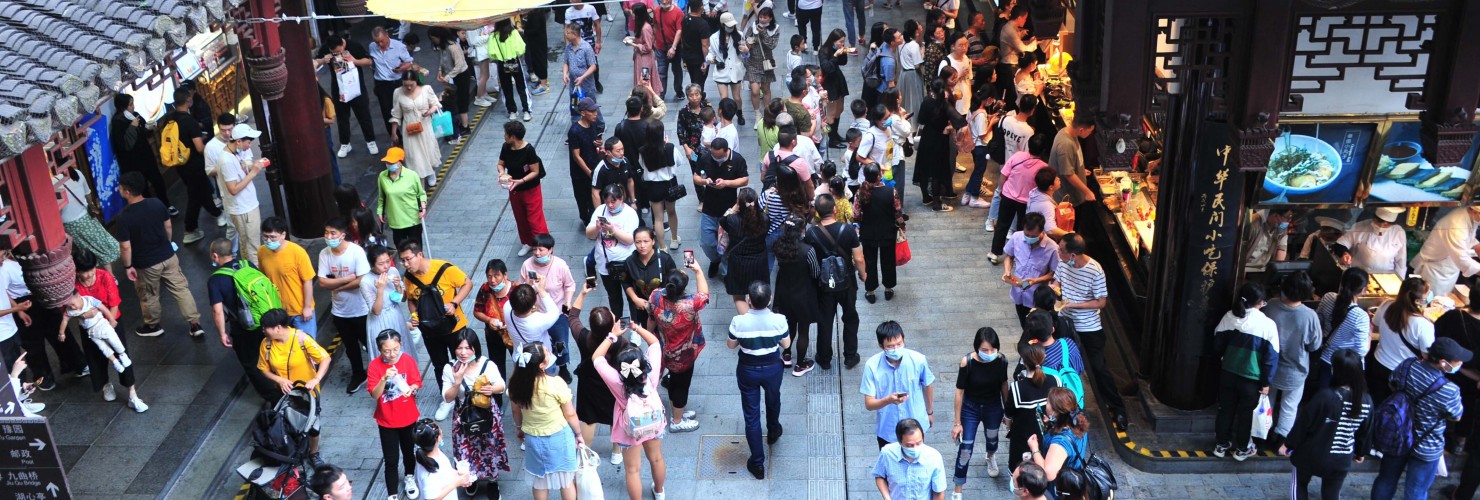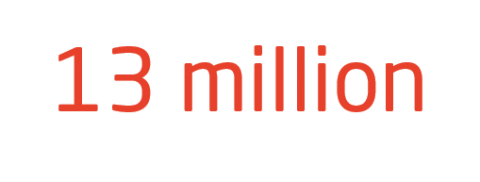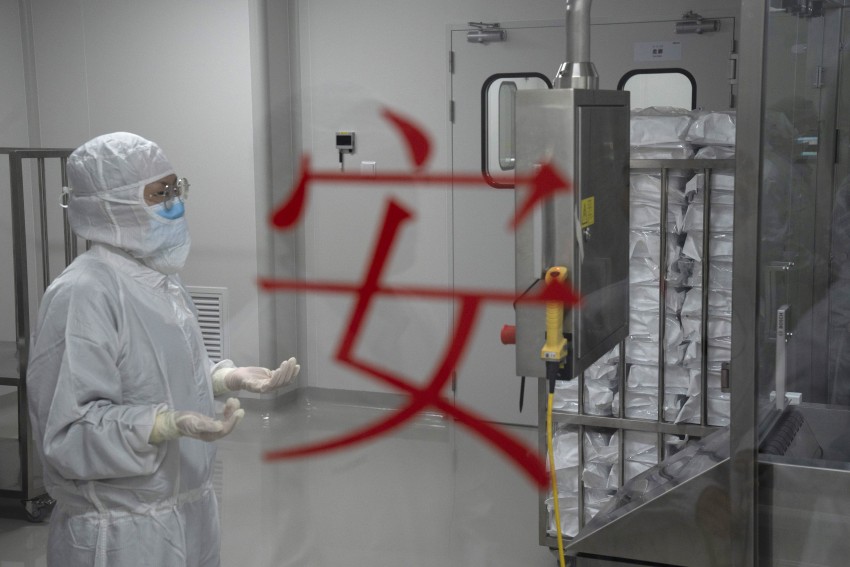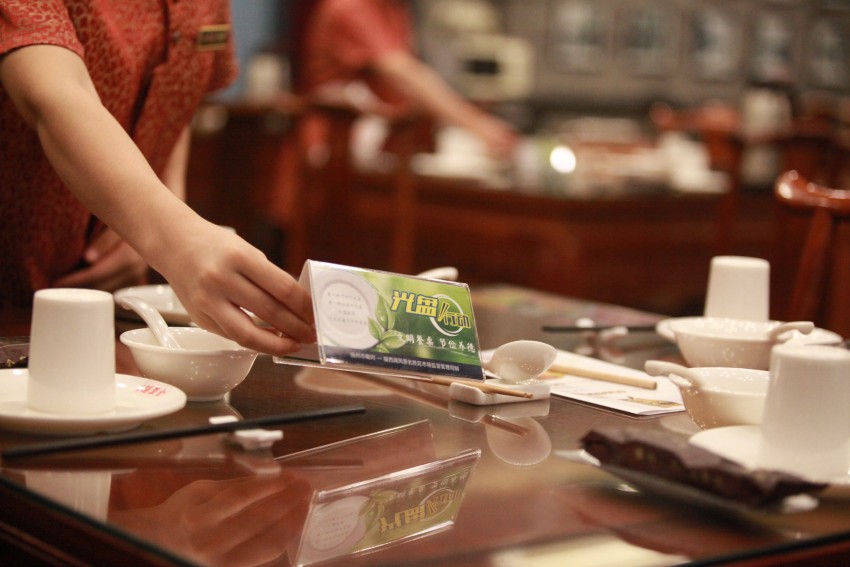

One country, two national days
TOP STORY: One Country. Two National Days
Mainland China celebrations contrast sharply with heavy policing in Hong Kong
The facts: About half a billion Chinese tourists packed travel destinations on mainland China to celebrate the country’s National Day, the first major Chinese holiday since the Covid-19 outbreak. Hong Kong, by contrast, marked October 1 with arrests of at least 86 anti-government protestors and heavy police tactics in the streets.
This is China’s first major national holiday since the implementation of the National Security Law in Hong Kong in June. Unlike last year when anti-government demonstrations turned violent, protester numbers this time were much reduced and those who did turn out were forced to scatter, outnumbered by the 6,000 police officers reportedly deployed, and by over-the-top security tactics such as random stop-and-search.
What to watch: In Hong Kong, October 1 was a litmus test for the new National Security Law. The heavy-handed measures, legitimized by the new law, have worked in Beijing’s favor, dampening the overall anti-government demonstrations. On the mainland, by contrast, the Golden Week was a litmus test for China’s economic rebound from the Covid-19 pandemic. Visitor numbers and tourism receipts are, however, down from years past, an indication that Chinese consumers remain cautious about the pandemic. Rightly so, as cases climbed briefly during the first few days of the week. Economic data showed that consumers are tightening their belts. This could prove a challenge for Xi Jinping’s Dual Circulation Strategy to reboot the economy through domestic consumption.
MERICS analysis: In the name of returning stability to Hong Kong, China makes no apologies for the heavy policing. Bolstered security forces went all out to quell unrest on one of the most important holidays in the Chinese calendar. Beijing is likely to hail the outcome as a success and attribute it to the recently installed National Security Law.
MERICS Chief Economist Max J. Zenglein has analyzed the situation of Hong Kong’s economy, learn more here.
Our newly published chronology recounts crucial events of the 100 days of National Security Law in Hong Kong.
Media coverage and sources:
- AP: Chinese tourists head for domestic destinations instead of abroad
- SCMP: At least 86 arrested on National Day in Hong Kong
- SCMP: China’s consumer spending remains weak
- ECNS: Hong Kong celebrates first National Day after security law takes effect
- Caixin: Half a billion travelers put Covid-19 behind them to celebrate National Day
- Reuters: Mainland China reports increase in new Covid-19 cases
METRIX

During the opening weekend of this year’s Golden Week holiday in China, cinema entertainment company IMAX Corporation made 13 million US Dollars in box office revenues. The takings were up 25 percent on last year despite capacity limitations due to the coronavirus pandemic. The Golden Week is a national holiday in China, running from October 1 to 8. (Source: AP News)
China’s Vaccine Diplomacy: Partnering for trials in at least 16 countries worldwide
The facts: “Vaccine diplomacy” has replaced “mask diplomacy” in the realm of China’s coronavirus geopolitics. Ten coronavirus vaccines are currently in the final phase of clinical trials, and four of these are being developed by Chinese companies. Due to a scarcity of homegrown coronavirus cases, the Chinese vaccines are undergoing third phase trials with partner institutions overseas. At least 16 countries, including Serbia, Pakistan, and Brazil, have signed up so far. Many of the countries hosting trials have also worked out agreements with their Chinese partners to purchase doses or manufacture the vaccine for local distribution. In mid-September, the United Arab Emirates (UAE) even approved Sinopharm’s vaccine for emergency use, making China the first country to have a vaccine approved for use by a foreign country.
What to watch: Although Xi Jinping has pledged China’s coronavirus vaccine as a “global public good”, the number of doses manufactured will necessarily be finite. While commercial and epidemiological factors will play a large role in future testing and distribution, the application of a Chinese vaccine will also be geopolitically significant. It will be interesting to see which countries get first access to a Chinese vaccine. Chinese officials have already pledged priority access to several countries in Africa and Asia, highlighting the vaccine’s role in China’s “Health Silk Road”. In June, Xi Jinping personally pledged to create a “China-Africa health community”.
MERICS analysis: “If China becomes the first country to manufacture a safe and effective vaccine at scale, the achievement will carry symbolic weight. However, framing itself as a global savior in a post-corona world is not without risks for Beijing," says Merics expert Jacob Mardell. “Aside from potential quality issues – as we saw with faulty protective equipment from China – Beijing also risks over promising. Domestic constraints mean China is not in quite the same position to act as economic savior as it was after the 2008 financial crisis.”
Media coverage and sources:
- World Health Organization: Landscape of Covid-19 candidate vaccines
- New York Times: China is using promises of vaccine as diplomatic carrot
Food security rises as concern for China’s leadership
The facts: Food security has risen as a concern in China as global supply chains were disrupted by the Covid-19 pandemic. The national campaign against food week that had started this summer was incorporated into Golden Week celebrations and became a trending topic alongside the week-long holiday. On August 10, President Xi Jinping issued a stern warning on food security and called on citizens to reduce food waste. A national campaign followed and there was widespread compliance reported across the country. Beijing has put a positive patriotic spin on the issue with the “Clean Plates” movement (光盘行动) aimed at rallying the country to reduce food waste. Xi called on the country to see wasting food as shameful, and frugality an attribute to be proud of (营造浪费可耻、节约为荣的氛围). The campaign went viral online, and schools, restaurants, corporates, and the public have been keen to show off how much food waste they reduce.
What to watch: Ensuring stable supply remains a serious challenge. China had earlier halted meat imports from countries where workers in meatpacking factories suffered Covid-19 infections. Prices of staples like pork and vegetables have skyrocketed in China due to shortages caused by the African swine flu, extreme flooding and the Covid-19 pandemic as food-producing countries halt exports and hoard supplies. China consumes more than it produces. For years, policymakers have tried but failed to make the country self-reliant, so it relies on imports to meet growing domestic demand especially in grains and meat.
MERICS analysis: “A national campaign to reduce food waste is not new. But for the call to come from the most powerful person in China signals a potential looming food shortage crisis,” says MERICS analyst Valarie Tan. “Food security is a top political priority ingrained in the history of the Communist Party. Social unrest as a result of acute food shortage has always been a major concern.”
Media coverage and sources:
- Washington Post: China’s mealtime appeal amid food supply worries: Don’t take more than you can eat
- China.org: Roundup of the Clean Plates Campaign
- What’s on Weibo: China’s Anti Food Waste Campaign Is Sweeping the Nation
- The Guardian: Xi Jinping makes food waste next target
- CGTN: The figures behind China’s clean plate campaign
- Financial Times: China scales back meat imports over virus concerns
China’s largest property developer struggles with enormous debts
The facts: A deal with the government and investors has saved China’s largest real estate developer China Evergrande Group from a January debt repayment deadline it would have struggled to meet. The group is highly indebted, having amassed 120 billion USD worth of debt – much of it at high interest rates. In the coming months, 5.8 bn USD worth of debt are coming due.
Markets were shaken on September 24 when it was reported that the company in August had sent a letter to the Guangdong provincial government warning officials that their liquidity situation may cause bankruptcies across the financial sector as well as layoffs. Following reports about the letter, Evergrande’s Hong Kong listing price collapsed from 15.2 to 13.8 Hong Kong Dollars on September 25. The share price recovered sharply after the company announced last week that, following discussions with Vice- Premier Liu He, it had reached a deal with investors that takes away their right to force a debt repayment of 15.5. billion RMB in January.
What to watch: Evergrande shines a light on the situation in the property market in China. If a player of Evergrande’s size is struggling, then the rest of the market is likely facing a similar situation. Policies stabilizing asset prices and controlling leverage in the property market are likely to follow.
MERICS analysis: The fact that the Evergrande case was brought up as high as Vice Premier Liu He shows that the Chinese government fears what may happen if the property market were destabilized.
Media coverage and sources:
- Nikkei Asia: China Evergrande reaches debt deal to relieve deadline pressure
- Bloomberg: How Evergrande’s Billionaire Founder Skirted Latest Crisis
- Financial Times: China developers’ dollar debt spooks investors
REVIEW
Eat the Buddha: Life and Death in a Tibetan Town, by Barbara Demick (Penguin Random House, 2020)
China tried to dazzle the world in 2008 when it hosted the Summer Olympic Games. But its oppressive regime in Tibet was laid bare for all to see when Chinese security forces opened fire on unarmed monks and nuns peacefully protesting in Lhasa to commemorate the exile of the Dalai Lama. Hundreds of Tibetans were reportedly killed and thousands more detained after widespread demonstrations across the Tibetan plateau. In the years that followed the 2008 uprising, over 150 Tibetans, both female and male, some as young as fifteen years old, took their protest against Chinese rule to an extreme by setting themselves on fire. A third of them originated from Ngaba, the “nothing little town” in Sichuan Province that has become the “undisputed world capital of self-immolations”, as Demick describes it.
To understand the reason for this is the premise for Barbara Demick’s latest book Eat the Buddha. The trials and tribulations of individual Tibetans from Ngaba, whose lives have been upturned by Chinese heavy-handed religious and ethnic suppression, are told in vivid, powerful and heart-wrenching detail. Through these stories, the reader is not only informed of the historical context of a complex issue but made to empathize with the deep-seated anger, exasperation and helplessness of a people whose stories have, until now, remained untold – silenced by the Chinese government.
Tibet is a heavily policed fortress, which Beijing is “anxious to hide from view”, accessible to foreigners only with permission from the Chinese government. Journalists and diplomats who ask the “hard questions” are rarely allowed entry. That makes Demick’s book an achievement in itself. More importantly, the book is timely for the parallels one can draw with the ongoing Chinese crackdown in Hong Kong and the detention camps disguised as vocational training centers in Xinjiang.
Review by MERICS analyst Valarie Tan
VIS-À-VIS: Ivana Karásková: “CEE countries should present Chinese partners with a unified position”
MERICS China Briefing spoke with Ivana Karásková, founder of MapInfluenCE and of China Observers in Central and Eastern Europe. In her new role as European China Policy Fellow at MERICS she talks about China’s influence in Central and Eastern Europe, the future of the 17+1 format and the impact this has on relations with the EU.
Questions by Janet Anderson, Freelance editor

What do Central and Eastern European countries hope to get from their relations with China?
Exports among Central and Eastern European (CEE) countries are mostly bound to Western Europe and therefore connected to the EU single market. Following the global financial crisis, CEE has striven to diversify its export and import routes towards the East, seeking greater access to the Chinese market and attracting foreign direct investment from China. The region has utilized the 17+1 format to upgrade diplomatic contacts with the Chinese side, arguing that while Western Europe easily attracts China’s attention, CEE countries need a platform to increase their visibility.
Are CEE countries forming a common strategy?
The relations between CEE and China are asymmetric, with China benefiting disproportionately from this arrangement. While not all 17 CEE countries would be able to work together on a unified strategy, there is less division of interests than may appear at first glance. To be sure, Hungary and Serbia have supported China on political issues a number of times, but they represent an exception rather than the rule. To offset the asymmetry, CEE should adopt an “ACT strategy” – adapt > counter > target – making full use of the multilateral character of the platform and, where possible, presenting Chinese partners with a unified position. For starters, they can hold regular 17+0 consultation meetings preceding summits with China. If China wants to retain its presence through the platform, it is more likely to accept the “multilateral condition” than to risk losing its influence altogether.
What are the biggest risks in this relationship, and can they be averted?
The biggest risks lie in CEE countries accepting opaque deals offered by China and deviating from stated EU values, norms and positions. It is crucial to promote transparency in public procurements and investment deals. For the “old Europe”, especially Germany and France, it is imperative to understand that a patronizing approach to CEE countries’ foreign policy can lead to a significant backlash and, in the end, be counterproductive.
The 17+1 framework is seen by some as a means for China to divide and conquer in Europe. How do you see it?
The 17+1 is certainly more active than previously thought. It helped institutionalize the region and provided a structure for China to deal with CEE countries. These countries do not realize that China is in the driver's seat. It is therefore important to closely monitor the platform and find avenues for utilizing it to serve primarily European interests.
Is the US or China seen to be a more important ally?
With some exceptions, CEE EU members are mostly US-oriented. China does not and will not play the role of the US as a key security guarantor to the region. However, it will continue to be an economic partner.
How do you see the relationships between these countries and China developing?
Since China’s “grand entry” to the region and establishment of the 17+1 in 2012, China has largely been seen as an economic opportunity. For a minority of politicians – such as Hungary’s Orbán, Czechia’s Zeman or Serbia’s Vučić – China has also been a political inspiration. In the past two years, however, a majority of CEE countries have become disillusioned as China’s economic promises have not fully materialized and security risks associated with Chinese companies have come to the fore. The future of the relationship with China depends on whether the security community (as well as the media, civil society organizations, and some MPs – mostly from opposition parties) prevails over proponents of economic pragmatism. It also depends on the US position to China after the upcoming presidential elections.
PROFILE: Peter Wong – Doing Beijing’s bidding at the Hong Kong General Chamber of Commerce
When Beijing proposed its new extradition law for Hong Kong in March this year, among the bodies expressing concerns was the Hong Kong General Chamber of Commerce (HKGCC). Under its then Chairman, Aron Harilela, the HKGCC said that any update to the city’s extradition laws should be handled with extreme caution.
How different things looked in May, with Peter Wong elected as the new Chair of the trade body. When Beijing proposed its new national security law for Hong Kong – a measure far more wide-ranging than the extradition law – the HKGCC did not utter a critical word. Quite on the contrary, Wong stepped forward and showed his personal backing by publicly signing a petition in support of the law. As CEO of HSBC Asia Pacific, an international bank with deep Hong Kong roots, Wong’s backing for the law sent a strong signal to the rest of the Hong Kong business community.
Wong is a typical Hong Konger in many senses – he studied in the United States and is able to navigate the West and China equally well. However, he is not only a leading member of Hong Kong’s financial community; he also holds a number of key positions on the mainland and is a member of the Chinese People’s Political Consultative Conference, China’s top advisory body. His actions as Chair of the HKGCC are a sign of how politicized life in Hong Kong has become. Beijing clearly expects businesses with strong ties in China to fall into line.
Media coverage and sources:
- Hong Kong Free Press: HKGCC says extradition law should be handled with extreme caution
- SCMP: HSBC chief backs China security law for Hong Kong
- HKGCC: Peter Wong official CV
MERICS China Digest
MERICS’ Top 3
- SCMP: Germany and western allies call for acceptance of Uyghurs as refugees
- SCMP: Negative views on China at record level – international survey
- Nikkei Asian Review: Xi joins Marx and Mao as required course at China’s top colleges
International Relations
- Reuters: UK to exclude Chinese students from sensitive subjects
- Brookings: For Taiwan, diplomatic green shots are emerging in Europe
- Financial Times: Germany crackdown set to exclude Huawei from 5G rollout
- Axios: German official quashed intelligence report on China influence
Politics and Society
- Nikkei Asian Review: Investigation of former Wang Qishan aide fuels China's rumor mill
- New York Times: Xi Jinping calls policies in Xinjiang “totally correct”
- South China Morning Post: First person charged under Hong Kong’s National Security Law
Economy, finance and technology
- Deutsche Welle: China leads in race for a digital currency
- South China Morning Post: Chinese chip maker SMIC says US is placing export restrictions on its suppliers
- South China Morning Post: China spent a record 2.2 trillion yuan on R&D in 2019
- Ecns.cn: China has over 500,000 5G base stations


